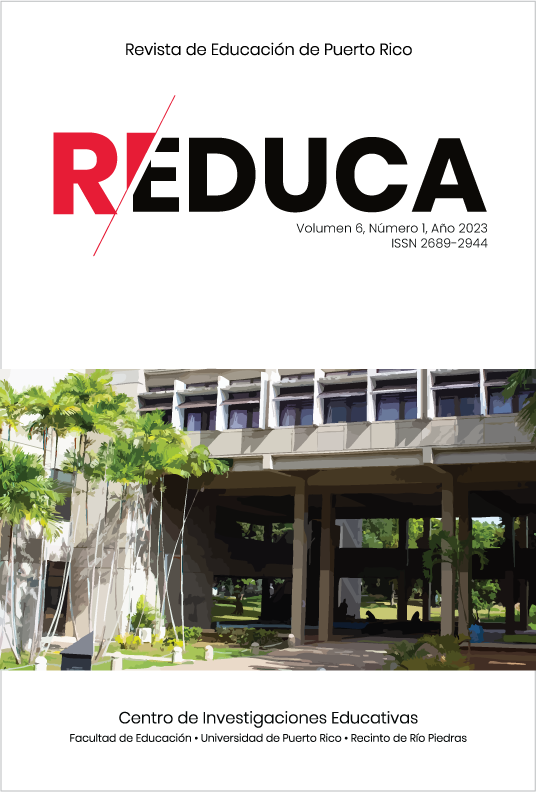Abstract
The project-based paradigm emphasizes the student’s active participation, who must be accountable for their own learning. When planning and choosing the educational activities that will be used to accomplish the work’s objectives and create memorable experiences for the students, consideration of their interests as well as the integration of the activities into the curriculum is crucial. This article examines a remote collaborative project implemented in a Language Arts course with fifth grade students from Puerto Rico and Guatemala as part of the UPR College of Education’s KOSKO project, which falls under the modality of teaching practice. This fostered the apprentices’ motivation, interactions, the search for consensus, cooperation, and reflection throughout the learning process.
References
Álvarez Borrego, V., Herrejón Otero, V. del C., Morelos Flores, M., & Rubio González, M. T. (2010). Trabajo por proyectos: Aprendizaje con sentido. Revista Iberoamericana de Educación, 52(5), 1–13. https://doi.org/10.35362/rie5251775
Carrió Pastor, M. (2007). Ventajas del uso de la tecnología en el aprendizaje colaborativo. Revista Iberoamericana de Educación, 41(4), 1-10. https://doi.org/10.35362/rie4142447
Cassany, D. (2009). Reparar la escritura: Didáctica de la corrección de lo escrito. Editorial Graó.
Figarella García, F. (2011). De “¡Escucha! ¡Copia! ¡Repite!” a “¡Investiga! ¡Comparte! ¡Crea!”: El enfoque constructivista y las interacciones en la sala de clase. Editorial Isla Negra.
Imbernon, F. (2018, abril 4). 1918-2018. Cien años de la metodología de proyectos. El Diario de la Educación. https://eldiariodelaeducacion.com/2018/04/04/1918-2018-cien-anos-de-la-metodologia-de-proyectos/
Pérez Terán, J. (2007). La lectura y la escritura: Procesos dialógicos y recursivos. Sapiens. Revista Universitaria de Investigación, 8(1), 99-109. https://www.redalyc.org/pdf/410/41080107.pdf
Ramírez Ramírez, E. del R. & Rojas Burbano, R. F. (2014). El trabajo colaborativo como estrategia para construir conocimientos. Virajes, 16(1), 89-101. http://vip.ucaldas.edu.co/virajes/downloads/Virajes16(1)_6.pdf
Vigotsky, L. (1979). Interacción entre aprendizaje y desarrollo. En El desarrollo de los procesos psicológicos superiores (pp. 123-140). Editorial Crítica-Grijalbo.

This work is licensed under a Creative Commons Attribution-NonCommercial 4.0 International License.

